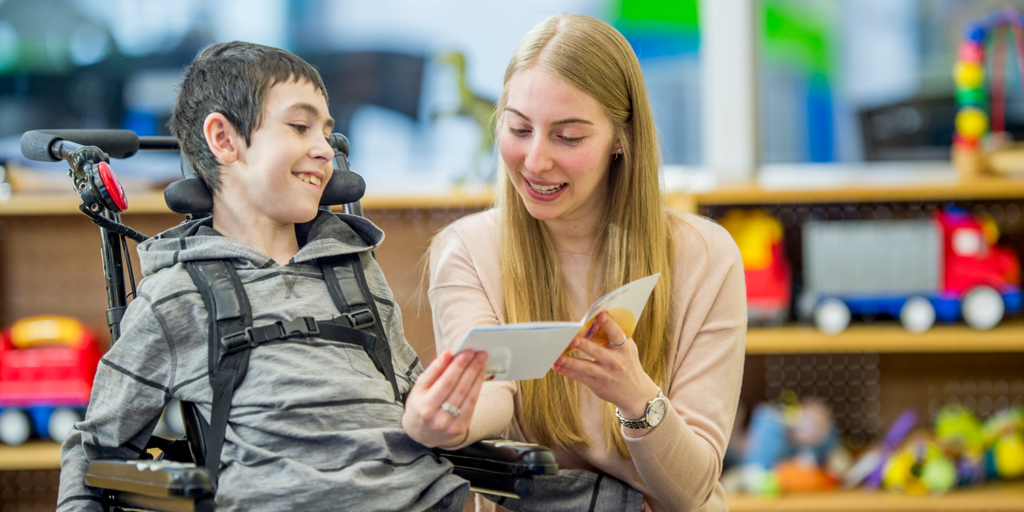Disability support services are crucial components of university campuses, dedicated to fostering an inclusive environment where students with disabilities have equal access to educational opportunities, facilities, and resources. These services aim to empower students, promote academic success, and advocate for accessibility throughout the campus community.

1. Accessibility and Accommodation
Disability support services provide essential accommodations and assistive technologies that enable students with disabilities to participate fully in academic programs and campus life. Accommodations may include accessible classroom furniture, note-taking services, sign language interpreters, captioned videos, Braille materials, and adaptive software. By removing barriers to learning and physical access, these services ensure that all students, regardless of their disabilities, can engage effectively in coursework, examinations, and extracurricular activities.
2. Individualized Support and Advocacy
Universities offer personalized support and advocacy services through disability coordinators, counselors, and accessibility specialists who collaborate with students to develop individualized accommodation plans. These professionals assess students’ needs, provide guidance on available resources, and advocate for reasonable accommodations that align with students’ academic goals and functional abilities. By fostering open communication and mutual respect, disability support services empower students to self-advocate, navigate campus systems, and access the support they need to thrive academically and personally.
3. Educational and Skill-Building Workshops
Disability support services organize educational workshops, seminars, and skill-building sessions to educate students, faculty, and staff on disability rights, accessibility laws, inclusive teaching practices, and strategies for creating accessible learning environments. These initiatives promote awareness, reduce stigma, and equip campus community members with knowledge and tools to support students with disabilities effectively. By fostering a culture of inclusivity and understanding, these educational efforts cultivate empathy, respect diversity, and promote collaboration across campus stakeholders.
4. Physical and Digital Accessibility
Universities prioritize physical and digital accessibility by implementing universal design principles in campus infrastructure, facilities, and online platforms. Accessible pathways, ramps, elevators, and designated parking spaces ensure safe and convenient navigation for individuals with mobility impairments. Digital accessibility standards address website accessibility, multimedia content, online course materials, and learning management systems to ensure that information is perceivable, operable, and understandable for all users, including those using assistive technologies.
5. Peer Support Networks and Community Engagement
Disability support services facilitate peer support networks, disability affinity groups, and student organizations that foster community, peer mentorship, and social connections among students with disabilities. These networks provide opportunities for students to share experiences, build friendships, and access peer support in navigating academic challenges, campus life, and personal development. By promoting a sense of belonging and solidarity, these community-building initiatives enhance students’ overall well-being and resilience throughout their university experience.

6. Collaboration with Campus Partners
Disability support services collaborate with academic departments, campus offices, student services, and community organizations to coordinate services, share resources, and promote a holistic approach to supporting students with disabilities. Collaboration ensures seamless transitions, coordinated support plans, and proactive interventions that address academic, social, and emotional needs. By fostering partnerships and interdisciplinary cooperation, universities enhance the effectiveness of disability support services and create a supportive ecosystem that promotes student success and retention.
7. Advocacy for Inclusive Policies and Practices
Universities advocate for inclusive policies, practices, and campus-wide initiatives that promote equity, diversity, and accessibility for all students. Disability support services participate in policy development, advisory committees, and institutional planning processes to advance disability rights, promote reasonable accommodations, and uphold legal protections under the Americans with Disabilities Act (ADA) and Section 504 of the Rehabilitation Act. By advocating for systemic change and cultural transformation, universities create environments where diversity is valued, barriers are removed, and all students can thrive academically and contribute to campus life.
8. Continuous Improvement and Feedback
Disability support services engage in continuous improvement processes by collecting feedback, evaluating services, and implementing enhancements based on student experiences, emerging technologies, and best practices in disability support. Feedback mechanisms, satisfaction surveys, and focus groups inform service delivery, policy revisions, and strategic planning initiatives that enhance responsiveness, effectiveness, and the overall quality of disability support services. By prioritizing continuous improvement, universities demonstrate a commitment to excellence in disability services and ensure that their campuses remain inclusive and accessible environments for all students.
In conclusion, disability support services play a vital role in promoting inclusivity, equity, and accessibility within university campuses. By providing accommodations, individualized support, educational resources, physical and digital accessibility, peer support networks, collaborative partnerships, advocacy for inclusive policies, and a commitment to continuous improvement, universities empower students with disabilities to succeed academically, engage fully in campus life, and contribute their diverse perspectives to the university community. Through these efforts, universities uphold their commitment to diversity, equity, and inclusion, fostering environments where every student has the opportunity to achieve their full potential and thrive.


